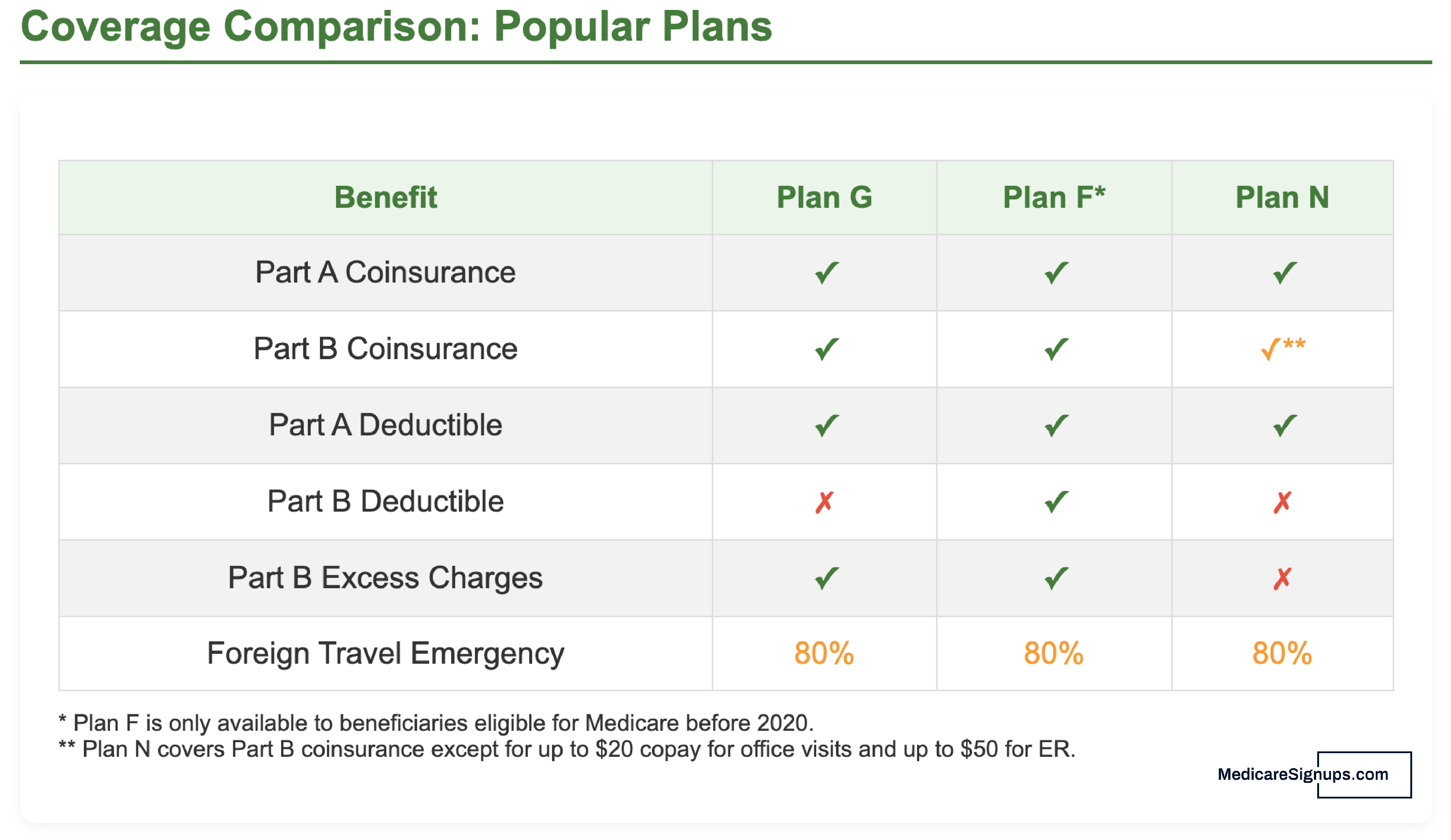
What is covered by Medicare Supplement Plans in Florida?
Medicare Supplement Insurance, or Medigap, is private coverage designed to help with out-of-pocket expenses like copayments, coinsurance, and deductibles that Original Medicare doesn’t cover. Medicare Supplement insurance plans are standardized by the federal government, which means that all plans of the same type must offer the same basic benefits.
Medicare Supplement insurance plans in Florida are available in 10 different plan types, labeled A through N. Each plan type offers a different set of benefits, with some plans providing more comprehensive coverage than others. The benefits covered by each plan type are as follows:
- Medicare Plan A in Florida: Basic benefits, including Part A hospital coinsurance and hospice care coinsurance or copayment
- Medicare Plan B in Florida: Basic benefits plus Part A hospital deductible
- Medicare Plan C in Florida: Basic benefits plus Part B coinsurance or copayment and first three pints of blood each year
- Medicare Plan D in Florida: Basic benefits plus Part A hospice care coinsurance or copayment
- Medicare Plan F in Florida: Basic benefits plus Part B coinsurance or copayment, Part B excess charges, first three pints of blood each year, Part A hospice care coinsurance or copayment, and skilled nursing facility care coinsurance
- Medicare Plan G in Florida: Basic benefits plus Part B coinsurance or copayment and Part B excess charges
- Medicare Plan K in Florida: Basic benefits plus 50% of Part B coinsurance or copayment, Part B deductible, and first three pints of blood each year
- Medicare Plan L in Florida: Basic benefits plus 75% of Part B coinsurance or copayment, Part B deductible, and first three pints of blood each year
- Medicare Plan M in Florida: Basic benefits plus 50% of Part A hospital deductible, Part B coinsurance or copayment, and first three pints of blood each year
- Medicare Plan N in Florida: Basic benefits plus Part B coinsurance or copayment and Part B excess charges and first three pints of blood each year
Among the more popular plans are Plan G, Plan F, and Plan N. Check out how they compare below, and if you want to see whats best for you reach out to a Medicare Agent in your area to set you up with a personalized plan in Florida.







